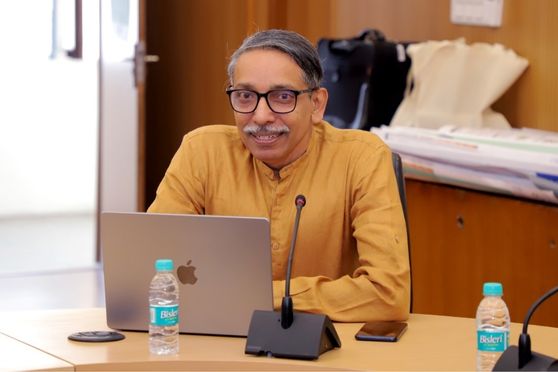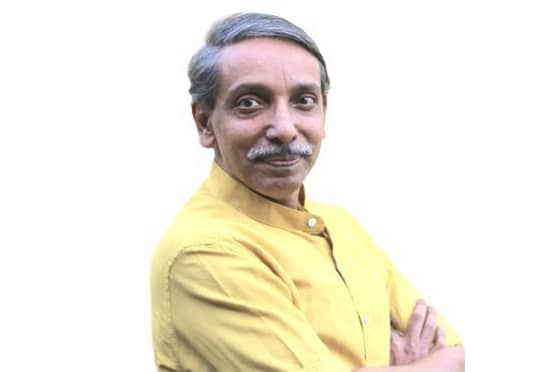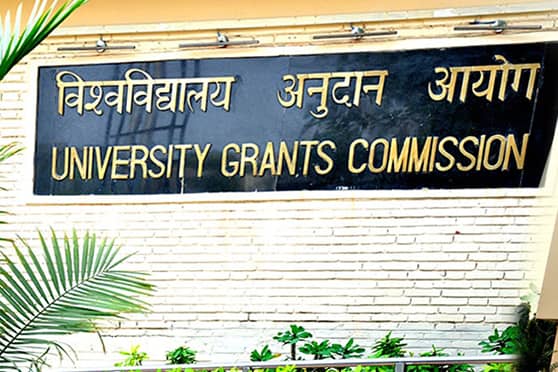UGC Chairman M. Jagadesh Kumar shares insights on the FYUP, NEP 2020 and Digital Textbooks


With the introduction of the New National Education Policy back in July 2020, the Trade Union Cabinet drastically paved the way for transformative reform of the schools and university system. This is the first education policy of the 21st century and it replaces the 34-year old National Education Policy that came into effect in 1986. However, ever since its announcement it has been creating a lot of chaos both amongst teachers and students. But what has the UGC got to say regarding the policy and their intent behind it? The Telegraph Online Edugraph recently spoke to the UGC chairman M. Jagadesh Kumar to bring you these insider insights. Read on to know more.
Q1. The National Education Policy emphasises on using local languages wherever possible. What is your take on this?
A1. We call all languages as Indian languages. In our country 45% of universities and 60% of colleges are in the rural background. Coming from a village I know that even though our school and colleges are English medium, most of the conversations that we have are in the local or regional languages. If one looks at the cognitive ability of the student right from the younger age, if they study in their own mother tongue, they become good learners. This is the reason why the National Education Policy emphasises on using our own language in our education. But at the same time we do not aim to neglect English as merely a tool of communication. Once our students become good learners they need to communicate with students across the globe and hence we at the same time emphasise that everybody should learn English as a communication tool.
Q2. But as of now there are very few good textbooks in any Indian mother tongue. Is the government taking any steps to bridge this gap?
A2. There are two things we are planning as a part of this language popularisation in education. Part 1, as I said most of the students, although they study in English medium, find it very difficult to ask questions to their teachers if the environment is only in English, as they are mostly comfortable in their own language. So, to provide help to these students we need to provide them textbooks in the Indian languages. So, in about 12 Indian languages, we want to bring out standard textbooks that will be used by students in their English medium programmes. These books may be written by some international experts or even published by them but we want to publish the digital versions of these books in Indian languages. As these books become available for students to use in the coming years and they start using them, we will then create an ecosystem where people will not feel uncomfortable speaking in their own mother tongue.
The next step which we are planning is that in all disciplines, both general and professional education, we want to offer degree programmes in Indian languages. In UGC we have also formed a national level committee because we want to encourage our Indian authors to write books in Indian languages. In order to do this our formed committee is in discussion with both international and Indian publishers who bring out the english textbooks in various disciplines. I am glad to inform you that in our first meeting which we held the publishers were very much excited about this idea.
Q3. What are the steps these committees are taking at present?
A3. The apex committee at present is also identifying text books which can be written by Indian authors. We hope that in the next 6 months or so we will be able to roll out the first batch of textbooks in different Indian languages and in the next couple of years we should have Indian language textbooks in all disciplines. Even for law, we have formed a committee headed by the former Chief Justice of the Supreme Court to bring out the books in legal education. Students should be encouraged to feel that not writing in English is not something to feel inferior about and they should feel proud to feel and express in their language.

Q4. Speaking about the rural backgrounds, there are numerous areas in the country which still do not have access to proper internet connectivity. Is the government taking any steps to assure that the students from these areas can also access the digital version of books with the same ease as that of urban areas?
A4. The digital version of books is becoming very popular by the passing time. Moreover, the digital versions of these books can be downloaded in as little as 1 MB. But taking into account the issue of not having a strong internet network which is time and again faced by the rural students we also signed up with the common service centres of Meity (Ministry of Electronics and Information Technology). These common service centres are spread across the country, especially in the rural areas. These centres are run by the youth of those areas which in turn also provides means of self employment for the local youth.
Q5. The initiation of CUET created a lot of chaos. One of the most popular debates which this initiation is giving birth to is that these entrance exams can also lead to the initiation of various coaching centres, increasing the overall cost to students. Is the government taking any steps to keep a check on this?
A5. Around 12 lakh students participated in CUET and a small percentage of these students got affected because of the glitches. Based on these experiences we have planned for the coming year to minimise all such glitches so that students actually focus on writing the examination without being worried about other things. We are taking all measures to prevent any kind of inconvenience in the coming year. Throwing light on JEE and NEET, the coaching industry has been in the picture for too long. Moreover, in these examinations the difficulty level of the papers is too high. The recent report also shows that nearly 90% of the students in JEE could not attempt more than 50% of the questions in the right way. Keeping all this in consideration in CUET we are assured that the syllabus is confined only to the 12th standard so the students who are just completing their board examinations need to have everything fresh in their minds in order to attempt CUET. We are also confining the teachers to keep the difficulty level of the papers moderate so that every student can answer the questions in order to test the knowledge of the students and not their ignorance.
Q6. The IITs have brought back their class 12 marks policy. Do you think it is necessary for such institutes to introduce admission through sports and other quotas ?
A6. It's a good idea actually. I believe in our country the admission process is through a process of elimination rather than selection. Students simply have to attend the entrance and then the top rankers are given admission, which is definitely not an ideal way of admitting students. However, having said that, considering the scale via which we are giving admission we want to keep our admission process completely objective, where we do not want any subjectivity to creep in. No student should feel that somebody undeserving got admission owing to the element of subjectivity. The time has come to re-think introducing some of these also as part of the admission process so that slowly we move to a selection based admission process rather than an elimination based admission process. Today, IIT’s do not come under UGC, they are autonomous. But NEP 2020 provides a roadmap to provide more flexibility and accessibility to high quality higher education. Therefore, I am hopeful that in the coming years the IIT’s and other institutions will look at this possibility of introducing a few seats for such extraordinary highly talented students.

Q7. Keeping the proposed curriculum of the Four Year Undergraduate Programme (FYUP) in consideration, how does the UGC think that these changes are going to benefit students?
A7. The FYUP was primarily introduced to provide flexibility to students when choosing what they want to study. For instance, it allows students to choose one major and one minor or even two majors, so that they can focus deeply in their chosen subjects. We also believe that in today’s time students should have multidisciplinary knowledge so we are introducing skill based education, language based courses and general awareness about environment, wellness, legal system and governance to make our students well rounded people who are aware of their role in the society. Thus, the FYUP is more multidisciplinary in nature rather than an entirely designed discipline oriented programme.
Furthermore, this FYUP also keeps in line with the National Credit Framework (NCrF) which was recently announced by the UGC. This allows students to have easy mobility where they can use credits to switch between courses. More importantly, in the FYUP, after completing 3 years students have the option to make a choice and shift to research. Our FYUP is also compatible with the FYUP on global levels, making the students job ready and well versed for higher education across the globe.
Q8. However, one of the strongest debates against FYUP is that it will trigger a lot of college dropouts in the long run. What is your take on that?
A8. In the new system which we have proposed we are actually aiming to empower the students rather than leaving the students to their fate. In the current system there are also many drop outs but with this system we have made it mandatory for students who want to drop out after 1 or 2 years that they have to acquire some skill based training to get a certificate so that they are job ready. I believe this system will also encourage a lot of students to get back and pursue their degree. We need to develop a mindset that if we fail once in our life that is not the end of our lives, students must learn from their failure. This new system aims to recognise that students have different cognitive abilities and we must respect individuals based on their inner abilities.
The new National Education Policy (NEP 2020) looks forward to make education more accessible to all, with a strong focus on the marginalised communities. Stressing on developing 21st century skills we hope that this transformation in the education sector can assist in making India a global power in the coming years.